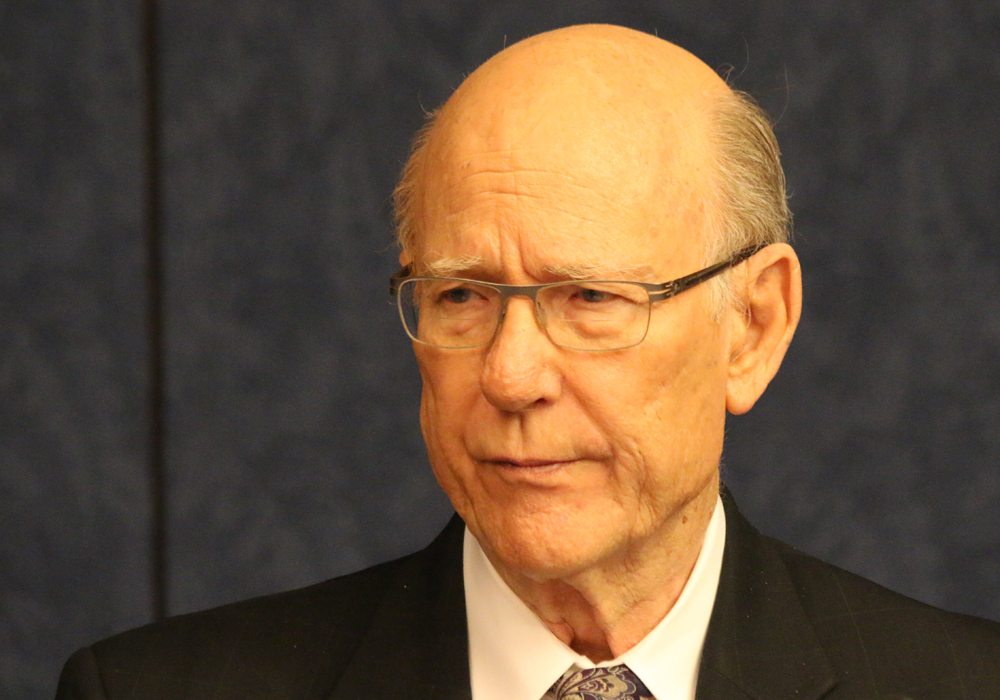WASHINGTON — With fear and anxiety gripping American farmers as a trade war with China looms, the United States government is considering emergency subsidies.
But major players of both political parties in the U.S. Congress express worries about special payments to farmers. Many say that staying out of a trade war would be a better idea and resolving free trade renegotiations with Canada and Mexico would help.
“We don’t need another subsidy program,” fumed Republican Senator Pat Roberts, the chair of the Senate Agriculture Committee, to the members of North American Agricultural Journalists April 10.
Read Also

Farming Smarter receives financial boost from Alberta government for potato research
Farming Smarter near Lethbridge got a boost to its research equipment, thanks to the Alberta government’s increase in funding for research associations.
“We need to sell our product. We need a major sale, and it would be wonderful if we got good news on NAFTA (North American Free Trade Agreement), especially with Mexico…. The wheat that’s sitting on the ground in Kansas today should be going to Mexico.”
Representative Collin Peterson, Democrat minority leader on the House of Representatives Agriculture Committee, also criticized the idea of an emergency payment to farmers if China hits U.S. farm products with tariffs.
“This is not what farmers want. This is not going to placate them…. They want their markets that they’ve spent all these years building up to be left intact and not screwed up by this policy,” Peterson said.
U.S. Agriculture Secretary Sonny Perdue and his department are examining using the Commodity Credit Corp. to intervene in commodity markets if prices fall due to a trade war, Deputy Secretary Steve Censky confirmed April 9.
“We are looking at all of our authorities,” said Censky, specifically mentioning the CCC.
“We are looking at all of those.”
U.S. farmers are upset by the escalating tensions with China, especially since China has already said it might hit U.S. soybean and pork exports in response to any U.S. tariffs on Chinese goods.
Zack Clark, government relations director for U.S. National Farmers Union, said farmers are worried and their organizations are going to get more active in lobbying the Trump administration against anything that provokes markets in China to close or shrink.
“We’re certainly planning on getting our members ginned-up on this. They’re getting very anxious,” said Clark.
“We’ve got a president who’s swinging some pretty strong rhetoric through our space and our farmers are trying to figure out what the heck they’re going to do.”
Clark was sceptical that an emergency program would significantly offset the impact of a trade war.
“I don’t think they can move the market in a way that would offset this potential damage,” he said.
Roberts said he was opposed to an emergency bailout because it not only dealt with a preventable problem, but also because it would set a precedent for future bailouts.
“We need a market and we need to sell our product. If we do that, we don’t have to have some kind of a crazy-quilt subsidy program that would set a precedent,” said Roberts.
Peterson said he would rather see regular subsidy levels for crop prices boosted, something that would bring a permanent gain.
“That’s what’s needed,” Peterson said.
“I am against a one-time bailout of a situation that was created by the administration.”
Clark noted the strange politics in Washington today, with some right-wing groups that support trade having backed Trump during his election campaign, but now needing to push back against his protectionist impulses.
“It’s certainly got some people in some very tough places on the trade front,” said Clark.
“I don’t think this is what they had hoped for.”
Contact ed.white@producer.com


















